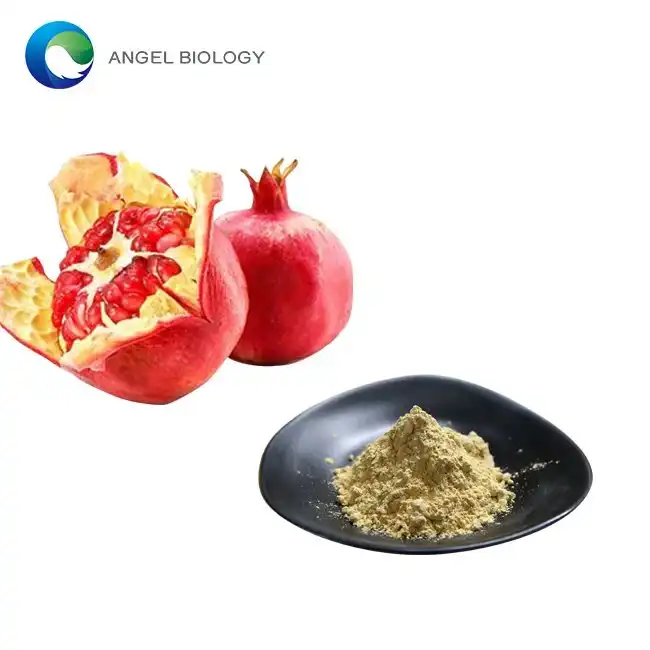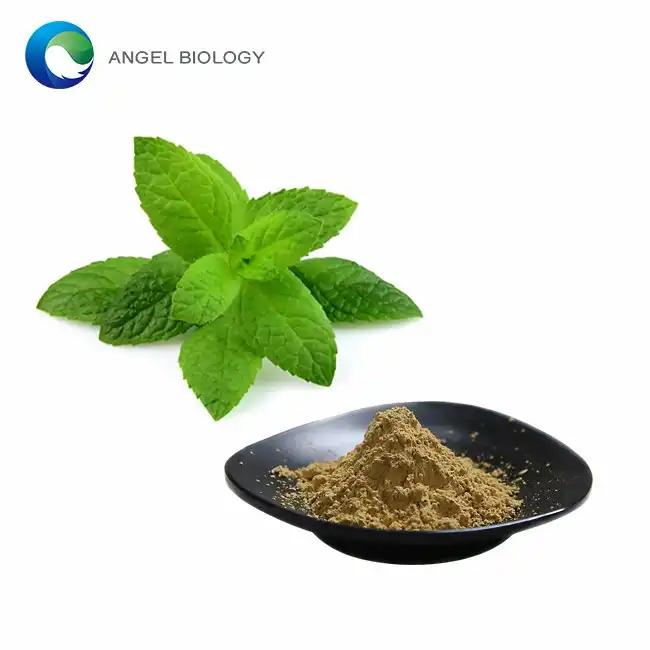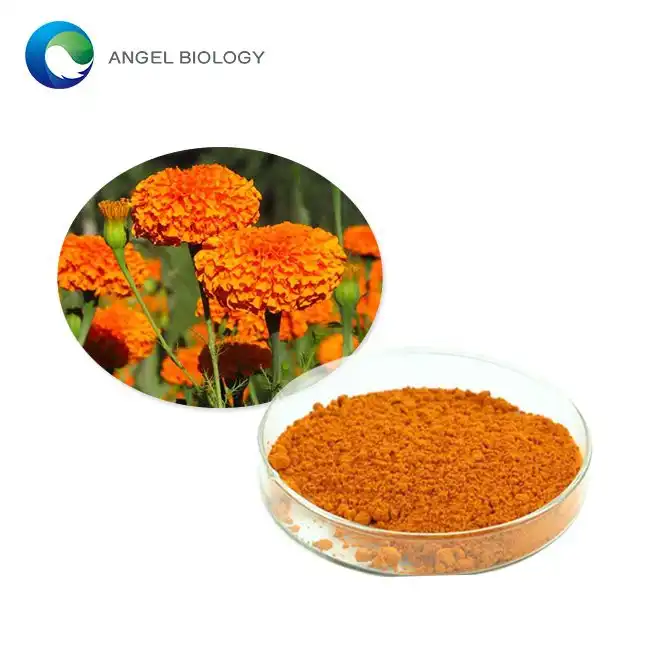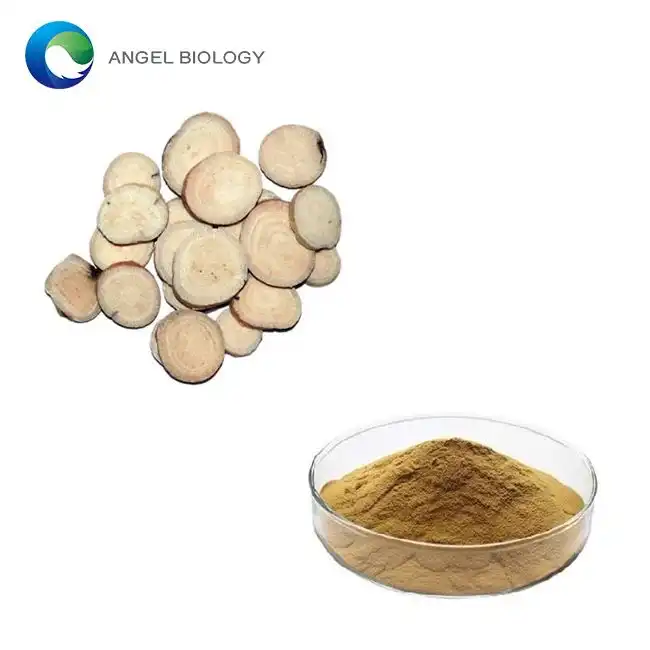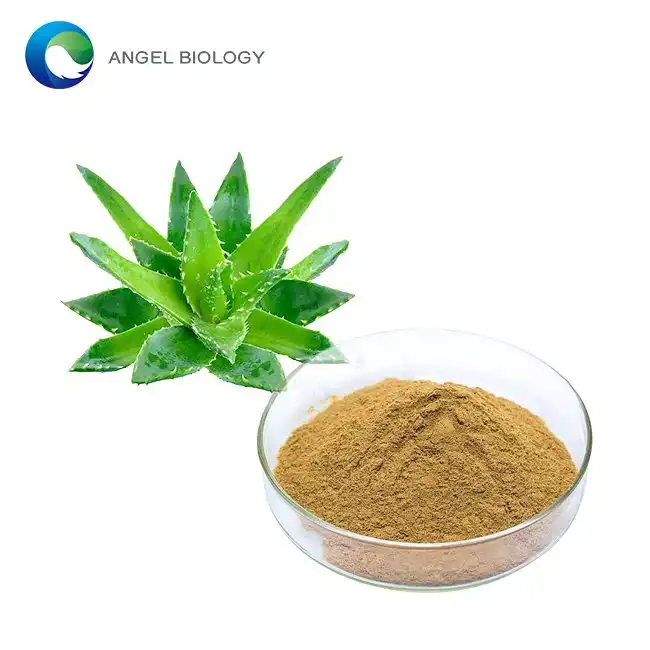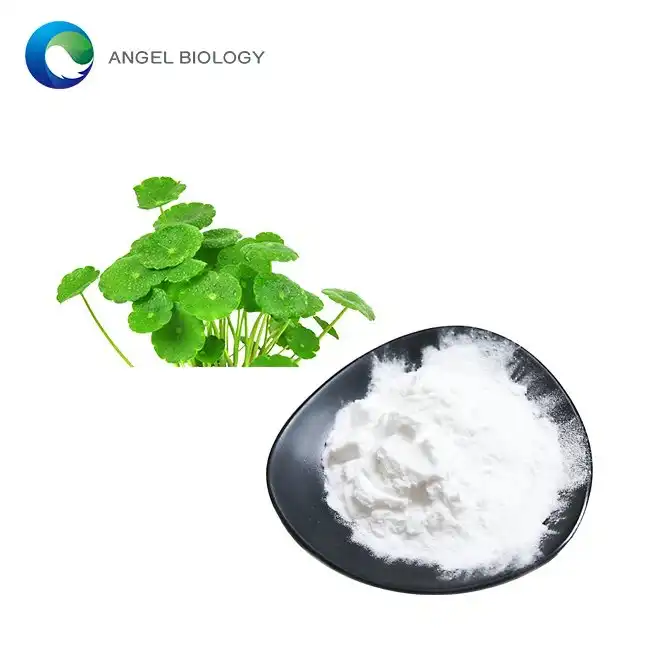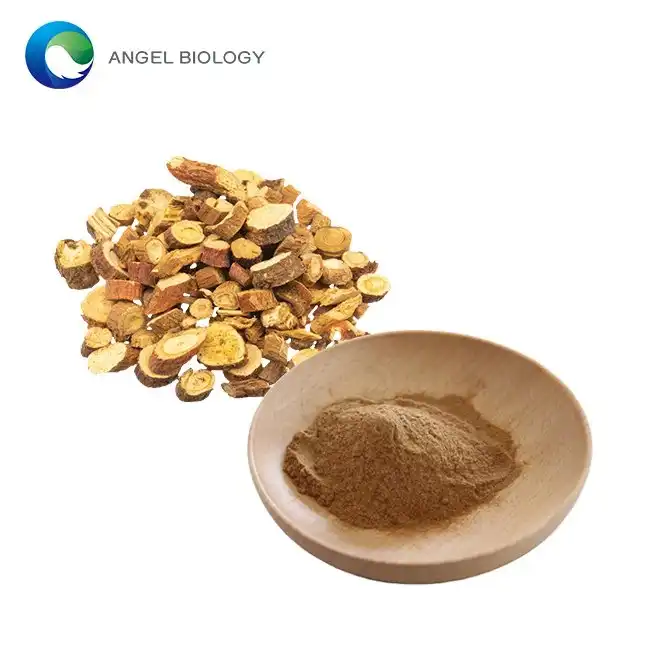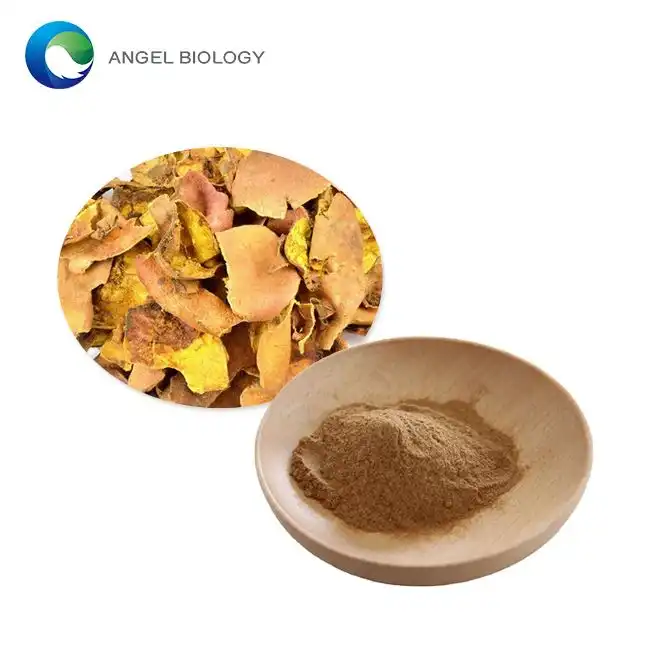How to Take Oyster Extract Powder?
Oyster extract powder has gained popularity as a nutrient-dense supplement, offering a concentrated source of zinc, amino acids, and other minerals. Many people are curious about how to incorporate this seafood-derived supplement into their daily routine effectively. This blog post will guide you through the proper ways to take oyster extract powder, its potential benefits, and important considerations to keep in mind.
What Are The Benefits Of Taking Oyster Extract Powder?
Oyster extract powder is renowned for its impressive nutritional profile, making it a valuable addition to many health-conscious individuals' diets. The primary benefits of taking oyster extract powder include:
1. Rich source of zinc: Oysters are one of the best natural sources of zinc, an essential mineral crucial for immune function, wound healing, and protein synthesis. Zinc also plays a vital role in maintaining healthy skin, hair, and nails.
2. High in amino acids: Oyster extract powder contains a wide array of amino acids, the building blocks of proteins. These amino acids support various bodily functions, including muscle growth, tissue repair, and hormone production.
3. Packed with minerals: Besides zinc, oyster extract powder provides other important minerals such as iron, selenium, and copper. These minerals contribute to overall health, supporting everything from red blood cell production to thyroid function.
4. Potential aphrodisiac properties: Historically, oysters have been considered a natural aphrodisiac. While scientific evidence is limited, some people report improved libido and sexual function when consuming oyster extract powder regularly.
5. Antioxidant content: Oysters contain antioxidants like vitamin E and selenium, which help protect cells from oxidative stress and may contribute to overall health and longevity.
6. Support for liver health: Some studies suggest that certain compounds found in oysters may have hepatoprotective properties, potentially supporting liver function and health.
7. Cardiovascular benefits: The omega-3 fatty acids present in oyster extract powder may contribute to heart health by helping to reduce inflammation and improve cholesterol levels.
When incorporating oyster extract powder into your routine, it's essential to consider the recommended dosage and potential interactions with other supplements or medications. As with any new supplement, it's advisable to consult with a healthcare professional before starting, especially if you have pre-existing health conditions or are pregnant or breastfeeding.
How Much Oyster Extract Powder Should I Take Daily?
Determining the appropriate dosage of oyster extract powder can be crucial for maximizing its benefits while avoiding potential side effects. Here are some important factors to consider when deciding how much oyster extract powder to take daily:
1. Manufacturer's recommendations: Always start by following the dosage instructions provided by the manufacturer on the product label. These recommendations are typically based on the concentration of the extract and the average nutritional needs of adults.
2. Individual nutritional needs: Your personal requirements for zinc and other nutrients found in oyster extract may vary based on factors such as age, gender, diet, and overall health status. For instance, men generally require more zinc than women, and vegetarians or vegans may benefit from higher doses due to limited dietary sources.
3. Zinc content: Pay attention to the zinc content of the oyster extract powder. The recommended dietary allowance (RDA) for zinc is 11 mg per day for adult men and 8 mg per day for adult women. However, it's important not to exceed the upper limit of 40 mg per day from all sources combined, as excessive zinc intake can lead to adverse effects.
4. Purpose of supplementation: Consider why you're taking oyster extract powder. If you're using it to address a specific nutritional deficiency or health concern, you may need a different dosage than someone taking it for general health maintenance.
5. Consultation with a healthcare provider: For personalized dosage recommendations, it's best to consult with a healthcare professional who can take into account your individual health status, medications, and nutritional needs.
Remember that while oyster extract powder is generally considered safe for most people when taken in appropriate doses, it's possible to experience side effects, especially if consumed in excess. These may include nausea, stomach discomfort, or changes in taste. If you experience any adverse reactions, reduce the dosage or discontinue use and consult with a healthcare professional.
Monitoring your body's response to oyster extract powder is crucial. Some people may notice improvements in energy levels, immune function, or skin health within a few weeks of consistent use. However, the effects can be subtle and may take time to become apparent. Keep a journal to track any changes in your health or well-being after starting the supplement.
Lastly, remember that supplements should complement a balanced diet and healthy lifestyle, not replace them. Oyster extract powder can be a valuable addition to your nutritional regimen, but it's most effective when combined with a varied diet rich in whole foods, regular exercise, and good sleep habits.
Can Oyster Extract Powder Be Taken On An Empty Stomach?
The question of whether oyster extract powder can be taken on an empty stomach is an important consideration for those looking to incorporate this supplement into their daily routine. While there's no definitive rule against taking oyster extract powder on an empty stomach, there are several factors to consider when deciding the best timing for consumption:
1. Absorption efficiency: Some nutrients in oyster extract powder, particularly zinc, may be better absorbed when taken with food. The presence of other nutrients in a meal can help enhance the absorption of minerals and other compounds found in the extract.
2. Potential for gastrointestinal discomfort: Taking supplements on an empty stomach can sometimes lead to mild gastrointestinal discomfort, such as nausea or stomach upset. This is especially true for supplements containing concentrated minerals like zinc.
3. Individual sensitivity: Some people may find that they tolerate oyster extract powder well on an empty stomach, while others may experience discomfort. It's important to listen to your body and adjust accordingly.
4. Interaction with stomach acid: The acidic environment of an empty stomach might affect the breakdown and absorption of certain compounds in the oyster extract. Taking it with food can help buffer this acidity and potentially improve overall absorption.
5. Timing considerations: If you're taking oyster extract powder for its potential benefits on sleep or relaxation (due to its zinc content), taking it on an empty stomach before bed might be preferable for some individuals.
If you decide to try taking oyster extract powder on an empty stomach, start with a small dose and gradually increase it while monitoring for any adverse reactions. Pay attention to how you feel in the hours after taking the supplement. If you experience any discomfort, try taking it with a small snack or during a meal instead.
For those who are particularly sensitive to supplements or have a history of gastrointestinal issues, it's generally safer to start by taking oyster extract powder with food. This approach can help minimize the risk of stomach upset and potentially improve the overall absorption of nutrients.
Remember that the effectiveness of oyster extract powder doesn't solely depend on whether it's taken on an empty stomach or with food. Consistency in usage, appropriate dosage, and overall diet and lifestyle factors play significant roles in reaping the potential benefits of this supplement.
As always, if you have any concerns or experience persistent side effects, consult with a healthcare professional. They can provide personalized advice based on your individual health status and nutritional needs, ensuring that you're using oyster extract powder in the most beneficial and safe manner possible.
Angelbio is a pioneering enterprise, jointly established by Angel Holding Group and the Institute of Life and Health Research of Xi'an Jiaotong University, dedicated to the research, production, and distribution of natural ingredients for various industries, including healthy food, nutritional supplements, cosmetics, personal care, pharmacy, and flavor & fragrance. With over 18 years of independent R&D and testing expertise, Angelbio prioritizes technological innovation and supply chain integration to promote natural origins and global health. Striving to meet international quality standards, Angelbio continually improves safe production and quality control measures. Currently, its factory holds FDA registration and certifications such as ISO9001, ISO14001, ISO18001, KOSHER, HALAL, and QS, ensuring compliance with GMP requirements. Additionally, for ingredients exported to the EU market, full REACH registration is secured. Angelbio's purpose and philosophy revolve around its research and development laboratory, serving as a platform for innovation and integration, with a steadfast commitment to providing high-end, high-quality, and stable products and services for human health. As a leading Oyster Extract Powder manufacturer in China, Angelbio's products are trusted and praised by customers. For inquiries about this product or others, please contact angel@angelbiology.com for dedicated service. These represent Angelbio's corporate advantages.
References:
1. Bao, B., et al. (2010). Zinc decreases C-reactive protein, lipid peroxidation, and inflammatory cytokines in elderly subjects: a potential implication of zinc as an atheroprotective agent. The American Journal of Clinical Nutrition, 91(6), 1634-1641.
2. Chasapis, C. T., et al. (2012). Zinc and human health: an update. Archives of Toxicology, 86(4), 521-534.
3. Dreno, B., et al. (2001). Zinc salts effects on granulocyte zinc concentration and chemotaxis in acne patients. Acta Dermato-Venereologica, 81(4), 260-261.
4. Gammoh, N. Z., & Rink, L. (2017). Zinc in Infection and Inflammation. Nutrients, 9(6), 624.
5. Grieger, J. A., et al. (2019). Oyster consumption and nutrient intake among pregnant women: analysis from the 2013 Australian Health Survey. Nutrition & Dietetics, 76(4), 431-440.
6. Lee, S. R. (2018). Critical Role of Zinc as Either an Antioxidant or a Prooxidant in Cellular Systems. Oxidative Medicine and Cellular Longevity, 2018, 9156285.
7. Prasad, A. S. (2014). Zinc: an antioxidant and anti-inflammatory agent: role of zinc in degenerative disorders of aging. Journal of Trace Elements in Medicine and Biology, 28(4), 364-371.
8. Roohani, N., et al. (2013). Zinc and its importance for human health: An integrative review. Journal of Research in Medical Sciences, 18(2), 144-157.
9. Solomons, N. W. (2001). Dietary Sources of Zinc and Factors Affecting its Bioavailability. Food and Nutrition Bulletin, 22(2), 138-154.
10. Wang, L. C., et al. (2007). Effects of zinc supplementation on the survival of patients who received concomitant chemotherapy and radiotherapy for advanced nasopharyngeal carcinoma: follow-up of a double-blind randomized study with subgroup analysis. The Laryngoscope, 117(6), 1021-1026.



